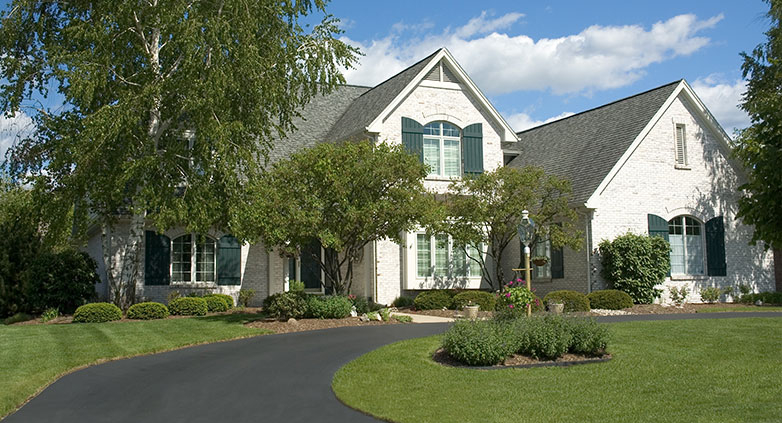Residential Asphalt Paving – Everything You Need To Know
In this article, we are going to discuss all about residential asphalt paving. As time has proved, asphalt is a better choice than other paving materials for several reasons. To begin with, it reduces the likeliness of potentially expensive and dangerous pavement blowups.
Furthermore, with asphalt, homeowners get a smoother and more uniform surface that other pavement materials cannot compete against. Asphalt driveways are advantageous in many ways for homeowners. They require less maintenance, are long-lasting and more weather proof.
Depending on your installation plan, an asphalt driveway can cost you anything from $2,930 to $6,560. With that said, let’s look deeper into the dynamics of residential asphalt paving below.
The Advantages of Asphalt
If you ever compare, you will find the advantages of asphalt pavement far outweigh those of other paving materials. In America alone, you will find majority of the residential driveways in asphalt, and one does not need to think hard why that is so.
The most crucial factor is the high safety level of asphalt. The material possesses a high skid resistance and being a petroleum product, you will find it more flexible. It is somewhat similar to tar, so that also means the driveway will stand better against the elements and not crack as easily.
Asphalt retains its dark color even in ice and under snow chemicals, plus the dark color also reduces glare. Experts claim that asphalt is able to melt snow and ice faster than the other paving materials, which is an added advantage.
Asphalt has numerous advantages but we have broadly categorized them into three for you below:
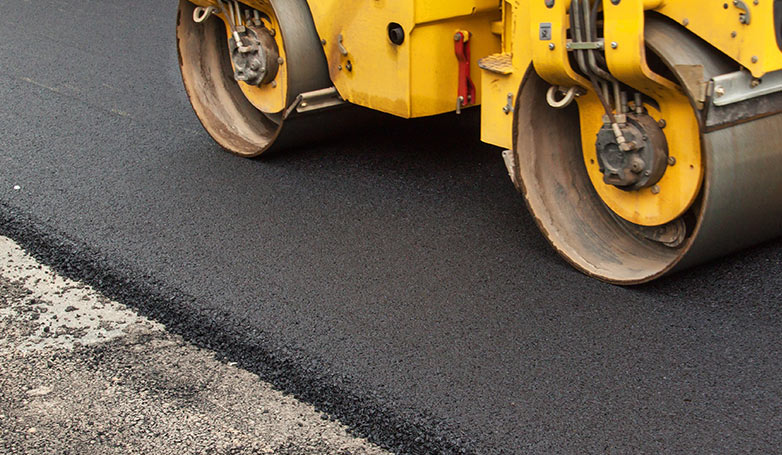
Cost
Remember we told asphalt makes smoother surfaces? This is a highly beneficial point because smoother driveways are not only extra safe for homeowners but also save money in many ways. Uneven and rough driveways increase the cost of wear and tear on vehicles, but when you have a smooth passage, your vehicles suffer no damage.
Your vehicle operating costs are lower while the driveway’s lifespan increases by 25% too when it is smooth. This in turn saves taxpayers their money. Then consider how quickly one can build asphalt roads in comparison to other pavements.
You can design a perpetual pavement with asphalt, which will need not more than periodic maintenance for staying in top shape periodically.
Durability
Asphalt has a longer lifespan than other materials. You would be pleasantly surprised to know that asphalt pavements exercising a bridging action because they are flexible. Hence, you get to rest assured that your pavement will be able to withstand occasional heavy loads easily and yet not suffer any serious damage.
You can design your pavement to suit any materials, soils and condition with asphalt. Plus, if they’re so highly durable, you wouldn’t need to spend too much on maintenance too. It’s a win-win all the way for homeowners.
Aesthetics
When one undertakes to design an infrastructure, an aesthetical appeal is also part of goal. An asphalt pavement is the ideal option for obtaining tremendous curb appeal. When you’re building a new pavement, apart from great surface and safety you also want it to contribute to the overall appearance of your residence.
With an asphalt pavement, you will not get any ungainly, unsightly or built-in cracks. Such a pavement will most certainly blend with and compliment your natural surroundings.
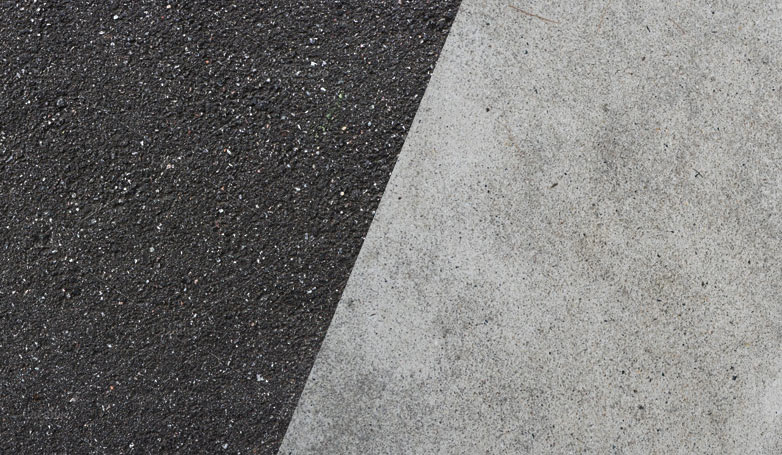
Asphalt Comparison with Other Materials
Part of the popularity and its preference to other materials is because asphalt is environmentally friendly. People consider it a green technology because they can recycle it so well and many times. When one has to recycle asphalt, they merely ground up the old asphalt and then reuse it.
Below we give you a comparison between asphalt and other common materials.
Concrete
You cannot recycle concrete all the time, and in most cases, people have to haul it away and dispose it in an environmentally friendly facility. By using a particular kind of asphalt, such as permeable or porous asphalt, you allow the pavement to percolate water into the soil below.
On the other hand, concrete does not facilitate such an action but instead runs water off the sides into the local water table or streams. Another reason why we rank asphalt superior to concrete is the convenience factor while working with it.
- You will have to pay 35% more for concrete than for asphalt.
- For asphalt maintenance, you only have to repave the top later because the base and middle layer are permanent. This means maintenance too is less costly for asphalt than concrete.
- You can install and use asphalt more quickly than concrete.
You may have to conduct more preventative maintenance for asphalt but this will only expand its aesthetical appeal. Your asphalt will look and function like new for a longer period. On the other hand, concrete quickly loses its new appearance and begins to look worn out a lot faster.
Asphalt can last for twenty years and beyond with proper maintenance, but you will find it cheaper than concrete even when you have to replace it.
Gravel
Gravel is a good paving option too, but it cannot beat asphalt in longevity and looks. You get maximized pavement life and a pleasing appearance with asphalt, but may have to conduct more maintenance on it than gravel.
Gravel works well for those who want a cheaper option but mind you, it washes out quickly and does not look all that great. Besides, gravel does not stand up too well under snow removal and climate. You will find ice and snow removal quite challenging if you have a gravel pavement.
It is also more prone to sinkholes and ruts, especially if your driveway has a high usage level. When you compare such drawbacks against asphalt, you can see why an asphalt pavement will serve you better.
Pavers
When you compare the up-front installation costs of asphalt with pavers, you will see a significant difference. Asphalt is cheaper in this regard, and you can also install in a day or two at most. Pavers don’t have a longer lifespan than asphalt and tend to become uneven.
Asphalt also tends to retain its dark colours even in severe climates like snow and ice, but pavers can lose its colour. This makes visibility difficult, especially in harsh climatic conditions. Moreover, the variations in sizes can make paver installation somewhat challenging and certainly more costly.
You will have to bear a lot more labour costs for brick paver hardscaping, which is not the case with asphalt. While maintenance of asphalt is not burdensome and infrequent, pavers, on the other hand, require resealing after every three years or so.
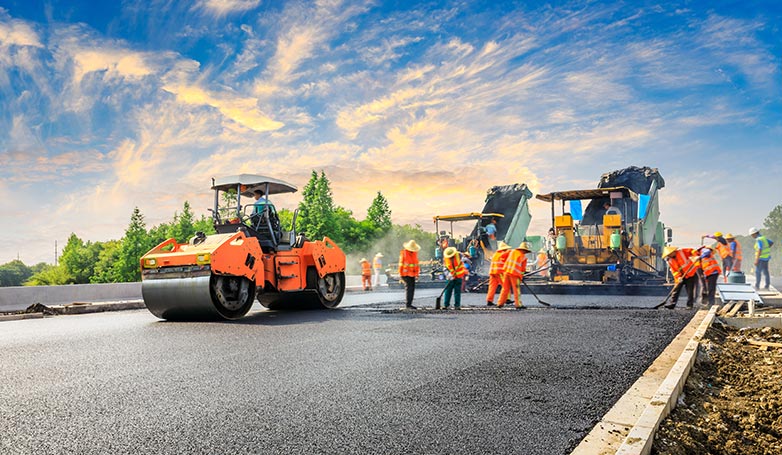
Costs of Installing a New Asphalt Driveway
A national average cost tells us that a new asphalt driveway would cost you around $4,500. Since this is just an estimate, you can expect the charges to vary depending on your location, choice of material, what quality and depth of material you require, and the size of your driveway.
Across the country, the installation pricing can range from $1,500 to $10,000, but in most cases, homeowners spend around $4,000 to $8,000. Again, certain factors affect this range, such as labour charges and the pricing rules of different states. Then one also has to consider other elements, such as the asphalt thickness, cost of other materials, removal of the existing driveway, preparing the grading and base etc.
How Asphalt is Installed – What to Expect
Asphalt installation takes place in a stepwise procedure. Let’s take a look at what you can expect when installing your asphalt pavement:
- Demolition and removal is the first step of asphalt installation. You need to get rid of your existing surface using heavy equipment and machinery and clear off the debris too.
- Then the experts must prepare the surface to make way for a proper water drainage system. They must use advanced technology for grading and sloping your surface, which is essential for ensuring the asphalt remains safe again water damage.
- Then comes the sub-base, which is the most vital aspect of new asphalt. The sub-base is the stable surface that lends support to your new pavement. It serves as a frost barrier to protect your pavement against damage from freeze-thaw cycle.
- Once the contractors have finished grading and compacting your sub-base, they must conduct a proof roll to ensure your underlying surface’s strength and readiness to support your new asphalt.
- After the sub-base is complete and soft areas treated appropriately, it is time to add the binder.
- When the supportive structures for your new asphalt are in place, the experts will add a fresh asphalt layer to complete the pavement.
- The experts may work on butt joints and transitions if necessary and observe a few more steps for the final roll.
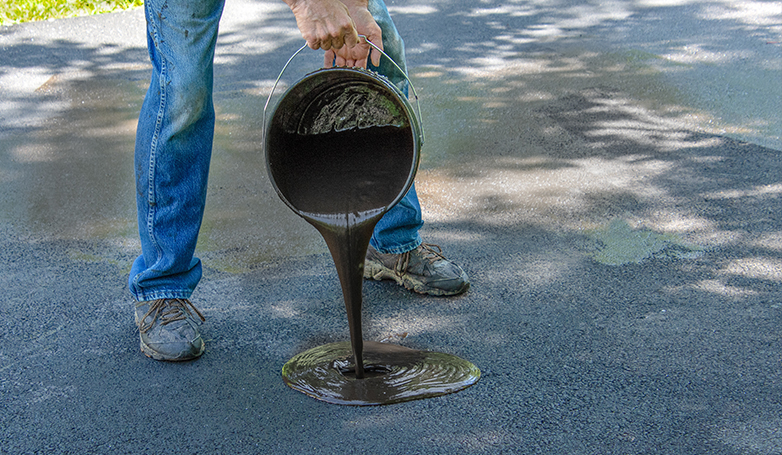
How to Properly Care for Your Asphalt Surface
To keep your asphalt in the best shape possible, you must be very thorough in its maintenance. Here are some essential steps to follow:
- Regular Inspection- your asphalt pavement needs attention, and you must not be negligent. Conduct regular checks at intervals to spot any breaks, splits or cracks in time. When you address potential issues faster, you resolve them before they turn into bigger asphalt issues.
- Preventive maintenance helps improve your asphalt’s shape before winter can set it.
- Be sure to protect your asphalt time and again with sealing. This will keep it from turning rough or drying out. Any negligence here would cause rapid deteriorations of the asphalt, with ridges and significant damage from freeze-thaw cycles.
- Keep your driveway free of obstructions. They not only look messy but can also damage your vehicles or cause accidents. This also means clearing off weeds, stones, pebbles and such that can tear your asphalt.
- Never fail to treat cracks, small fissures or potholes immediately. The longer you these off, the more they will worsen. Soon you will have excess water seeping in and widening the cracks and crevice. Erosion is never a good thing, so do not let it spread on your asphalt pavement.
- Yes, driveways exist to cater to heavy loads, but there’s never any harm in being thoughtful while using it. Be a little mindful of your asphalt. Try to keep foot traffic and automobiles away after installation, repaving and maintenance for a few days. Be more cautious in parking your cars while the asphalt is still curing.
- If your driveway is new, try to keep heavy vehicles off it.
- Do not subject your asphalt pavement to pointy heels, scratchy lawn chairs, motorcycles and bikes, especially in the hot seasons. These can cause holes and depressions.
Different Types of Asphalt
You can find several variations with a mix of asphalt with other materials, but you can find five main types of asphalt. These include:
- Course Graded Asphalt- this is a coarser mix of asphalt. People generally refer to these as base layers or binder mixtures. This supports more refined mixes that you may for parking lots, roads and driveways surface lifts.
- Surface mix- this is the most common kind. This mixture heats between 300 to 350 degrees F and then goes as a finishing layer on surfaces.
- Porous asphalt- this is an environmentally friendly solution and famous is as EPA best practice. Businesses most commonly use this asphalt because of its tax benefits and greener approach.
- Warm Mix Asphalt- more fuel-efficient because it heats at merely 200 to 250 degrees F. this one requires less effort and also emits lesser CO2.
- Cold Asphalt- This one is common for pothole repairs. Being a cold mixture, you can use it in cold temperatures, and it has high water-repelling potential at any temperature. It is best for repair purposes because it has a shorter lifespan.
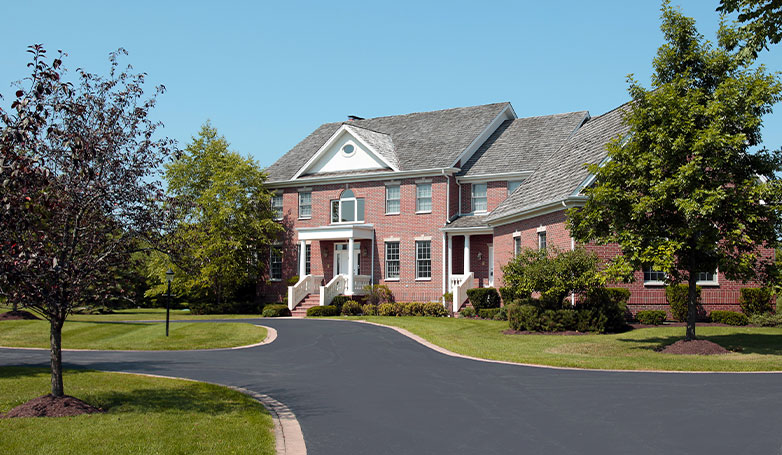
Final Thoughts
Residential asphalt pavements fare better than most other pavement materials. They are cost-efficient, environment-friendly and more durable. The installation process is relatively straightforward and quick, which means your driveway can be ready in as quick as two days. Your asphalt pavement can serve you well for twenty years and even beyond with proper maintenance and care.

